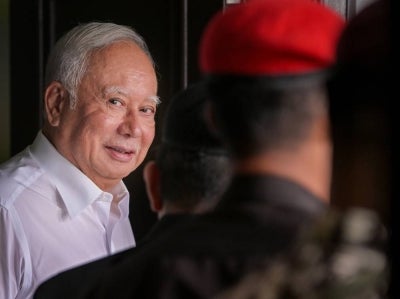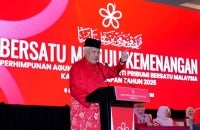Saving public funds or Commonwealth Games? Which should take priority?

For over a week now, sports enthusiasts, observers and fans in the country have expressed various reactions following the Youth and Sports Ministry's statement regarding its readiness to discuss Malaysia’s preparedness to host the 2026 Commonwealth Games.
Its minister Hannah Yeoh announced that the ministry was preparing a Cabinet paper, encompassing the findings on various aspects of organising the event, to be submitted to the Cabinet before any decision was made.
Moreover, Prime Minister Datuk Seri Anwar Ibrahim was asked about the "once-in-a-lifetime" offer during a press conference at the end of his six-day visit to Germany last Saturday.
Acknowledging the various views on the offer, Anwar said it should be viewed from various angles, in addition to considering all the pros and cons before the government makes a decision.
Even though approval from the Cabinet was pending, numerous reactions have already surfaced. Concerns have also been raised about funding, sponsorship, the tight timeline, facilities and athletes’ preparation.
It is understood that there were more individuals who disagreed with Malaysia hosting the 2026 Commonwealth Games compared to the ones who supported it, especially considering the country’s previous hosting of the quadrennial sporting event in 1998, known as the 1998 Commonwealth Games (Sukom 98).
Those who disagreed were of the view that this was not the right time for Malaysia to host the event as it will only take place in about two years, thereby potentially putting pressure on Malaysia in terms of finances and facilities.
According to Sukom Ninety Eight Berhad chairman General (B) Tun Mohamed Hashim Mohd Ali, Malaysia was not as well-prepared to host the 2026 Commonwealth Games as it was in 1998 when it hosted the event.
Two years was too short to prepare in all aspects, thereby raising concerns about the negative impact on Malaysia's image after the historic success of hosting Sukom 98.
Moreover, it was also hoped that Malaysia would not be one that was willing to assume responsibility to replace Victoria, Australia as the host just because it would receive £100 million (approximately RM602 million) in funds from the Commonwealth Games Federation (CGF).
Why should we strive to be heroes or saviours if ultimately it could suffocate us?
If Victoria, which was selected to host the 2026 edition, had to withdraw last July due to increased organising costs, what will happen in the next two years?
Mathematically, costs will undoubtedly increase. If Victoria estimated that organising costs increased by AUD7 billion (RM21.78 billion) from the initial estimate amount of AUD2.6 billion (RM8.09 billion), a similar script is likely to unfold if Malaysia becomes the host.
Even though the CGF’s offer was perceived by some as a "future hope" scenario, including the RM602 million fund, in reality, it was insufficient because the cost of hosting the Commonwealth Games was expected to reach billions of ringgit.
For the Cabinet, which was expected to make a decision soon, think carefully. With the economy still uncertain, now is not the time for Malaysia to replace Victoria.
Instead of wanting to save the Commonwealth Games, it is better to save taxpayers' money or at least save Malaysian sports, which have been somewhat bleak lately.
Download Sinar Daily application.Click Here!














